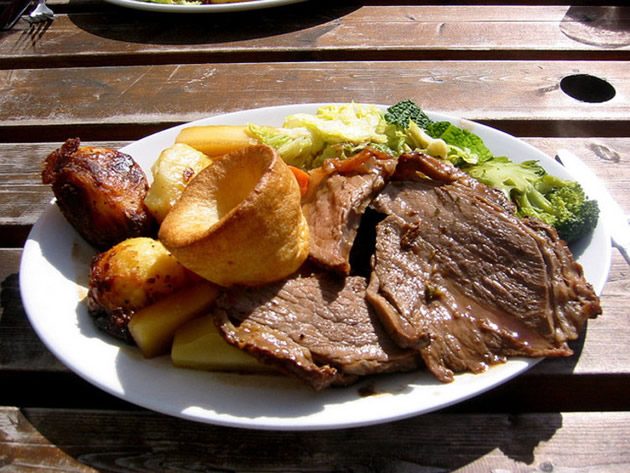The art of eating

Dr Annamore Jamu Features Correspondent
How long do you take to eat your breakfast, lunch or dinner? How long do you take to drink a glass of freshly squeezed orange juice? There are some people who do not even remember what they ate yesterday. They scratch their heads, roll their eye balls, and gaze in the sky just trying to think what they ate the day before. Why?
When they finally respond, they tell you they won’t be sure whether it had been chicken and rice?
As for the other foods, you can be lucky if they tell you they drank water.
Have we stopped caring about what we eat?
Have we never considered that eating is an art?
A lot of people blame bad eating habits to lack of adequate time to sit down. Stop it!
Why won’t you wake up an hour earlier so that you do not munch your food while walking to the bus stop or while negotiating through the dreaded traffic?
We are slowly forgetting what tomatoes smell like, what bread smells like, what carrots taste like, never mind the way they are being grown.
The art of eating starts off by thinking of what you are going to eat. Let’s take lunch for example.
A couple of hours before lunch think about what you are going to have.
For people who are able to prepare their own lunch this comes automatically.
For the rest of us, we have to start thinking of it two hours prior.
This helps in making your body prepare to deal with the food. Your taste buds get tickled and that’s the way to ensure that you will enjoy the lunch.
I always tell people “God is a master planner.”
We were not given sight for nothing: when the lunch is finally in front of you — inspect it!
Have a good look at it.
Notice the succulent juice oozing from your steak. The more your salivary glands secret saliva, the more your pancreas, liver, stomach start producing their appropriate digestive juices.
Blind people always touch the food to find out what it is.
Next you have the sense of smell to use. Smell your cabbage, smell your steak, your peas, carrots; whatever you have got on your plate.
Again by doing this you are preparing your digestive system. You tend to digest better if you appreciate your food.
Many of us eat and we get full but not satisfied.
The food doesn’t become fulfilling.
No wonder some people say they pass out undigested foods.
I guess by now you would have switched off your cellphone. There’s nothing I find so disturbing than being told of horrid stories while eating.
Let’s be honest, a lot of stories we receive are very challenging.
If one eats and he is on the phone, you are bound not to chew adequately, not appreciate your chicken and not be able to know that you are full.
Some phone conversations can actually turn your appetite off!
When God created the universe, there was a lot of science that went into it.
This is why He always admired his creation and said “it was good.”
So when He created man, remember He had created all the food for man to enjoy.
This means that whether you understand science or not, proper eating can not be discussed without the science that goes with it.
There are simple things that one has to observe when you take a bite of anything:
Chew for a long time (32 times).
This breaks down the food so that you are able to swallow. You are also increasing the surface area for the saliva to work on. This also allows the message of satiety to reach your brain and allow you to feel that you are full.
- Mix the food well using your tongue
This ensures that the saliva wettens the food hence prepares for the first step of digestion to take place.
- Swallow in little portions to avoid trauma to the food pipe.
- Do not mix it with water or drink. This dilutes the saliva and reduces the contact between your food and the digestive enzymes in the saliva and stomach thus leading to indigestion (poor or slow breaking down of food).
I normally recommend drinking water two hours before and two hours after a meal. Yes one can have a sip of wine after 6-10 bites but no more than a small glass of wine during the meal.
- Avoid lying down soon after any meal; you tend to have a bit of the food flow back into the lower end of the food pipe.
This causes heartburn in some people.
- If you take 20 to 30 minutes eating then you are doing well.
When I monitor my family eat especially the grandchildren, I tell them not to “cement mix”. This is a term I have coined for them. They chew only three times and swallow; on top of that they take a bite and mix it with a drink.
As I mentioned earlier on, thorough chewing is important because that is when saliva is well mixed with the food to start the process of digestion.
Saliva contains enzymes that act on the starch we eat.
So for example, if one does not chew enough and mix properly the food with saliva, already digestion or breaking down starchy food like sadza, potatoes, rice is not optimal.
Good chewing also optimally prepares food that is digested in the stomach for further breaking down. Your proteins and fats are broken down and digested in the stomach.
Equally important in the art of eating is how digested food is eliminated from the body.
The normal elimination of the eaten food is through passing of stool.
Now the big question; how often should a person pass stool?
I always get polite when answering this question when patients ask me by asking them how often the body requires food?
The answer is that it varies from three times a day to once in three days.
A good habit to practise is to make sure that as soon as one wakes up, train your system to pass through.
If one sits long enough on the toilet chamber, or assumes that position in the bush, one is bound to pass stool.
If that becomes hard, I advise that you drink one litre of preferably warm water, lie on your back and move your legs as if you are cycling in the air.
This physically moves the bowels and you are bound to feel like passing stool.
You can see that this requires time and peace of mind. One of the contributing factors why people don’t go to the toilet as often as they should is clearly the issue with time and space.
Not many people pass stool at workplaces, for example.
They tend to want to use their own toilets, unless they have a tummy upset.
So the art of eating consists of good balanced diet with enough fibre, chewing well, at least two litres of clean drinking water taken throughout the day and finally maintaining good bowel emptying regimen. Enjoy your next meal!
Dr Annamore Jamu is the producer and TV anchor for HealthSense, a programme that empowers you to “live life” by looking after your health and environment thereby preventing diseases. For your views and comments: [email protected] or WhatsApp on 0773 338 633










Comments